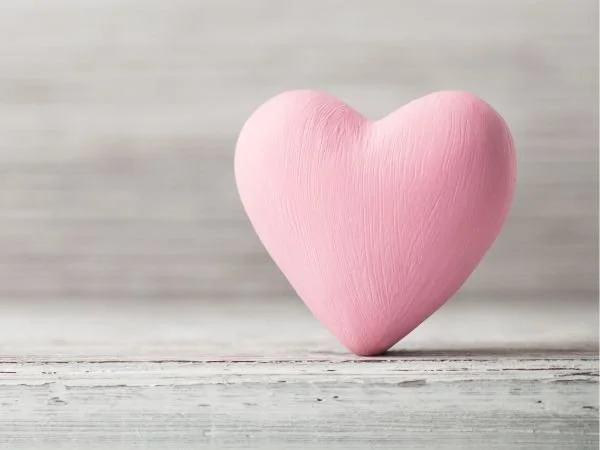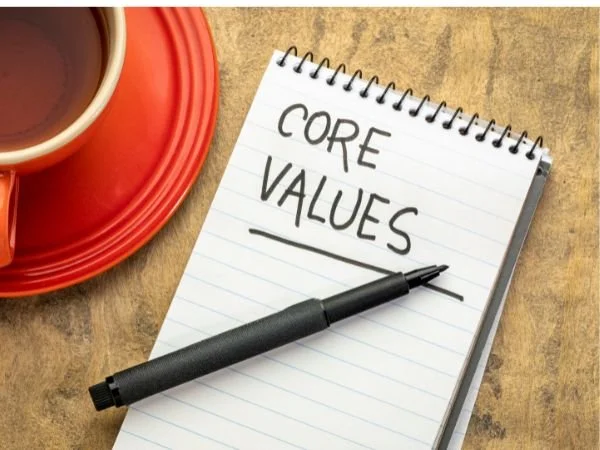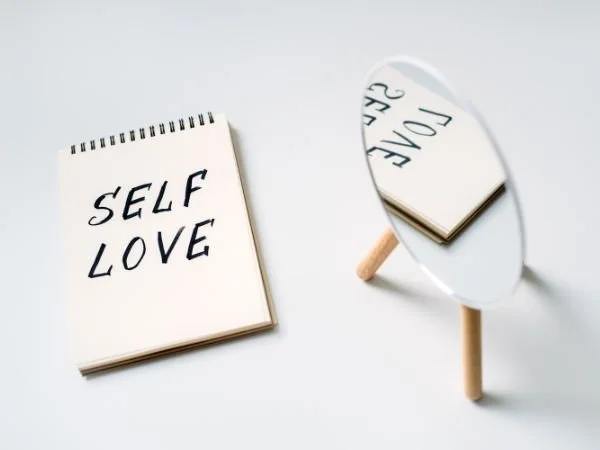131: Healing After Betrayal: How Do You Know When to Let Go?
In this episode, I answer a listener’s question about healing after betrayal in a long-term relationship. A year and a half ago, this listener cheated on their girlfriend, and ever since, the relationship has been continued falling apart with no signs of improvement. We explore what it really takes to rebuild trust, how betrayal reshapes both people, and when letting go might be the most compassionate choice. I share insights on navigating emotional triggers, making difficult relationship decisions, and honoring your own healing journey.
Looking for More Resources on Healing from Infildelity?
Timestamps ⏱️
Introduction :05
Question: 2:10
Outro: 20:30
Have you followed and left a review for New View Advice?
Let me know what you think of the podcast! Podcast followers and ratings help bring new listeners to the show, as well as help me to continue creating content. So if you enjoyed the show, I’d love to ask you to follow and leave a rating on your podcasting platform by:
Head to New View Advice on Apple or Spotify
Click Follow on your podcasting platform
Scroll down (or when promoted) click the 5 star rating!
-
This podcast was transcribed by an AI tool called Castmagic. Please forgive any typos or errors.
Amanda Durocher [00:00:01]:
Welcome to New View Advice with Amanda Durocher. Hi, beautiful soul. Welcome to this episode of New View Advice. If you're new here, my name is Amanda Durocher, and this is a podcast where I offer advice and guidance for the healing journey. I I do not believe I have all the answers you seek. I believe you have all the answers. You just may need a new view and a little help along the way. Today, I'm answering a question from a listener who is feeling very stuck within their relationship.
Amanda Durocher [00:00:25]:
This listener cheated within their relationship, and them and their partner have tried to repair the relationship but have struggled for the past year and a half. And through that struggle, there has been continued pain, betrayal, and, honestly, from this question, I feel a sense of hopelessness for moving forward within this relationship. So my intention for this episode is to help us to explore betrayal. And when is it time to let go of a relationship? When is actually letting go of somebody the loving thing to do within that relationship? So my hope with this episode is to help anybody navigating the situation and to feel less alone and also to feel like maybe they have a new option. I find when people write into new view advice, many times they're in a situation where they feel stuck, and my hope is always to offer guidance on steps you can take to feel unstuck. Because the truth is so many times in life, it's about making choices, and it there's not a right or wrong choice. Truly, choices and actions so often give us more information than just feeling stuck. I believe self awareness is really important.
Amanda Durocher [00:01:26]:
We talk a lot about that here on the podcast. Sometimes self awareness and introspection can only take us so far, and it's actions and showing up in life and taking those steps forward that really give us information and help to move us forward along our path. So before I jump in today's episode, I like to mention that newviewadvice.com, if you haven't checked it out yet, has a bunch of free resources for the healing journey. There are blog posts, journal prompts, meditations. I also have an infidelity hub, which has resources for people healing from infidelity specifically. So if you're interested, you can check that out at newviewadvice.com after the episode. And with that, let's jump on into today's episode where we are talking about betrayal, healing, and when to let go of a relationship. Dear Amanda, I cheated on my girlfriend when we had been together for a year and a half.
Amanda Durocher [00:02:15]:
I texted a girl, and I looked at porn and girls on social media. I broke my girlfriend's heart because I promised her I'd never do anything like that. She felt safe with me, and I did so much awful sexualizing of other women behind her back. Now it's been another year and a half, and we're still together, but it's been constantly downhill. We barely see or speak to each other. When we do, it's hardly ever nice things. The fights get worse and worse, and I'm scared. I don't wanna lose her, but we drive each other mental.
Amanda Durocher [00:02:40]:
She was perfect before I cheated, and now everything triggers her, and I'm happy to talk about stuff, but she brings things to me with such aggression. It's so hard for us to have a nice day together. It gets so bad when we fight, and we can't remember any of the strategies we've learned, and we just bring up everything wrong the other person has done. We've seen a couple's therapist, and it feels like we make plans and are good until we aren't, and then we need help again. We work overnight and hardly sleep or get to be home. Our life is hard, and I wanna make it easier. I've listened to so many self help podcasts, including yours, and nothing fixes us. No matter how bad I wanna stop fighting with her, I get triggered sometimes and sucked in, and I scream and I yell and I regret it and ruin everything because she can't forget.
Amanda Durocher [00:03:18]:
What should we do? Thank you so much for this question. I think many people can relate to the struggles of healing after infidelity, and I think that healing from betrayal within a relationship is one of the hardest things you can do within a relationship. I think it's possible to heal from betrayal, but I also think it takes two people willing to heal. And, truthfully, I don't think every relationship survives betrayal. I think a lot do, but I also think a lot don't. So here, I wanna discuss that a bit. Because from your question, it sounds like you two have tried a lot of different things. It sounds like you've been to couples therapy.
Amanda Durocher [00:03:51]:
You've practiced strategies. It sounds like you've talked about the betrayal, but it sounds like both of you are having trouble moving forward. And one of the reasons I think you guys are having trouble moving forward is that it sounds like you've been in this pain cycle for a year and a half. So though you've learned strategies and though you've discussed the betrayal and the infidelity, it sounds like neither of you have really changed or made the step towards creating safety within the relationship. And truthfully, since you are the one who committed the betrayal, I would say it's likely your responsibility to create that safety. So you talked about how you still scream, yell, and then you regret it. And to me, that's a sign that maybe you're not ready to create safety within this relationship because you also say here that you believe your girlfriend should forget it. The reality is she's never gonna forget what you did.
Amanda Durocher [00:04:41]:
You hurt her. You betrayed her. It doesn't mean you can't heal, but you're not gonna forget it. I've been through many horrible things in my life, hard things. I haven't forgotten them. The truth is forgetting something is often a trauma response. I repressed a lot of the things I went through before I healed. Healing actually improves my memory.
Amanda Durocher [00:05:02]:
I remember things quite clearly. I see the truth of situations, but I do not forget what happened. I don't forget the betrayals I've been through. I also don't forget the time I've betrayed people. It's a heartbreaking thing to do to somebody. It's so heartbreaking to break somebody's heart, and I don't forget the pain that's happened to me because it teaches me. I learn from it. I grow from it.
Amanda Durocher [00:05:21]:
Why would I wanna forget the things that have helped me to grow into the person I am today? They teach me how to love myself. They teach me how to notice red flags. They teach me how to be in the world. And, also, I'm not gonna forget the things I've been through because the old versions of myself don't deserve for me to forget the pain that they've been through. And I mentioned that because if what you are looking for is for her to forget it, that's not gonna happen. That's not healing. Healing isn't forgetting. Healing is letting go of the pain and processing and forgiving.
Amanda Durocher [00:05:53]:
And by forgiveness, forgiveness to me is truthfully just a letting go, but that's going to require your girlfriend to feel safe with you and safe within the relationship and to relearn to trust you again. And to me, it sounds like both of you may not be able to do that for one another. Because you say you still fall into screaming and yelling, and she's not able to let it go. And to me, it sounds like you two need to take a pause within this relationship. It does not sound like it's benefiting either of you right now. You've tried couples therapy. You've tried the self help books, but it sounds like this pain may have cut too deep for you to heal together. It sounds also like you two may need to do some healing individually because it sounds to me like both of you are holding on to an old version of this relationship.
Amanda Durocher [00:06:38]:
Because you said in your question, she was perfect before I cheated. You're holding on to an old version of her that also didn't exist because you are telling yourself now that she was perfect. No one is perfect. She was never perfect, and she's likely holding on to the you that didn't betray her. Like, she wants you to go back to being that old version of you, and that's not realistic. Both of you have to have a conversation about where you are today, and you both have to be honest about the pain that both of you have been through in the last year and a half because it sounds like you have both continued to hurt each other over the last year and a half. So not only have you been through the original betrayal, the cheating, but there has been continued betrayal, pain, hurt. You both have likely said things that you regret, as you mentioned in your question.
Amanda Durocher [00:07:25]:
And it's really important for you both to be honest with each other about where you both stand today, not a year and a half ago, and not when you first met. Because that's the other thing with relationships is that relationships ebb and flow and they grow. I've been with my partner for fourteen years, and we are entirely different people than we were when we met. Our relationship is entirely different, and it goes through ebbs and flows. It goes through good times, hard times. It goes through times where I'm struggling, where he's struggling, where we're struggling together. It also goes through times where we're both doing really good, and it's about how we navigate growth and change together. It's not about trying to hold on to who we were when we first met.
Amanda Durocher [00:07:59]:
It's about when we begin to change or the relationship changes. It's about can we grow together, can we change together. It's not about holding on to the past. And through your question, to me, it sounds like you are holding on to the past. It sounds like you're struggling to forgive yourself, you're struggling to forgive her, and you want her to be the version she was before she felt betrayed by you. And it sounds like the same thing is going on for her, that she's holding on to the you at the beginning of the relationship. Because what you described to me is that in the last year and a half, there has not been good things. Maybe there's been glimmers of hope, but you described the relationship as getting worse and worse.
Amanda Durocher [00:08:34]:
It's been downhill. You barely see or speak to each other. And when you do, it's hardly ever nice things, and the fights are getting worse. And to me, you both deserve a relationship where you aren't always fighting. You both deserve to feel safe within your relationship, and you both are struggling to create that safety for one another. And I would say you are likely the one who would need to create that safety because taking accountability for what you did and the trust that was broken isn't a one time apology, as you know. Sounds like you've been to couples therapy. You listen to self help podcasts, and you've been reflecting.
Amanda Durocher [00:09:10]:
But you continue to go into this cycle of screaming and yelling, and that's not gonna create safety for your girlfriend. That's going to trigger trauma responses. It sounds like you get triggered. Right? With her aggression, her fight response triggers your fight response. And it sounds like you both have tried. You have tried to make this work. It really sounds like you have. And you say nothing fixes you.
Amanda Durocher [00:09:33]:
I wanna be clear that I don't believe I can fix you. You say nothing fixes us. I don't believe I have the power to fix you. Only you and your girlfriend together can heal and grow within your relationship. And how you would fix it, I don't even really like the word fix, but I'll roll with it because you used it, is that you have to fix the foundation. The foundation of your relationship is broken, and that is what would need fixing. It would be repairing that through trust, safety, and rebuilding a new relationship. And, again, I wanna stress that it sounds to me like you both are living in the past.
Amanda Durocher [00:10:05]:
You're both trying to create and recreate a relationship that does not exist anymore. That's one of the things with betrayal in relationships is that the old relationship is gone. Now it's time to build a new relationship. Your foundation was broken. It is broken. And the question is, do you have the tools to rebuild it? And so with the constant fighting within your relationship, it's hard to rebuild a solid, safe foundation. In your relationship, I truly think you both need to ask yourself if staying together is the most loving choice you can make. Because both of you clearly love each other.
Amanda Durocher [00:10:42]:
You wouldn't have stayed together for the last year and a half if you didn't love each other. But both of you have continued to hurt one another, and that is not loving. And that creates more and more pain, more and more resentment, more and more betrayal within your relationship. And you both deserve to be in a loving relationship where you're both able to grow and feel safe and trust one another. And sometimes, there has just been too much pain between two people for trust to be rebuilt. That is a reality. Or you both need to go do work on your own, see individual therapists, work through the reasons why you both fall into the fight response. And, truthfully, because you're the one who betrayed your girlfriend, and you are the one who continues to yell and scream, I think that it's important for you to do some inner work by yourself.
Amanda Durocher [00:11:38]:
You know? Why did you oversexualize women? Why do you continue to if you continue to? Why did you feel like your girlfriend was perfect? I find that happens a lot actually in relationships, is that we meet somebody and we think they are perfect, and we put them on this pedestal. And then they do something, they betray us or they act the way we didn't want to, or we do something bad and they get angry, and they get knocked off that pedestal. And we're like, wait. You're not perfect anymore. I want that perfect version of you back. That wasn't real. You thought she was perfect. She was never perfect.
Amanda Durocher [00:12:13]:
And I would say that's part of your inner work to understand why you thought she was perfect, why you want this perfect version of her back. Because, truthfully, what you're seeing now is a human. You're seeing all the sides of who she is. And I did wanna comment on objectification. Objectification oftentimes is talked about with sexuality. So we objectify somebody by viewing them as a sex symbol. But the true definition of objectification is viewing somebody as one dimensional. And I just wanna bring that up here because you mentioned you thought she was perfect, which to me is making her one dimensional, and you mentioned over sexualizing women, which is also objectifying women, viewing them just as sex objects.
Amanda Durocher [00:12:53]:
So for you, I think it's important for you to maybe look a little deeper at your patterns with women. Why do you objectify women? And where are the roots of your beliefs about women? What was your first relationship like? What is your relationship with your mother like? Do you have sisters? What are your relationships with your sisters like? Did you have a good relationship with girls in school? Did you feel like they were friendly? Did you feel like they bullied you? Were you rejected by girls? What is your relationship with women? And through your question, I can't help but wonder if this is something that maybe you could look at in your own life and bring more awareness to. Because by labeling your girlfriend as perfect and by saying that you feel like she should forget and you mentioning sexualizing women, likely viewing them as sexual objects, I think the objectification of women is something that you could bring awareness to. And so with all that, I really think in your relationship, you're at a breaking point where things either need to change in a big way, where likely you have to be the one who chooses no longer to go into the fight response, no longer yell and scream, and hold that safe space for your relationship to heal and for trust to be rebuilt, or you both have to be honest that pain has been created over the last year and a half, and this relationship likely needs a pause, ending, or reset, which would involve you two taking time apart. And maybe you start by taking a month apart, and you reevaluate in a month where you both are at, but it sounds like you both really need time away from each other because all you keep doing is hurting each other. And neither of you deserves to be hurt over and over again. For example, you did really deeply hurt her. But a year and a half later, it's not that she can't bring it up anymore, but if you guys haven't moved forward at all, you don't deserve to be punished over and over again for it.
Amanda Durocher [00:14:39]:
But she also doesn't deserve to be screamed and yelled at because she's having trouble moving forward because the safety and the foundation was never rebuilt within your relationship. And so I wanna honor here that choosing to start from scratch within this relationship is a hard choice, and so is ending this relationship. Both choices here are hard. And you have to be honest with yourself. Are you able to be the safe person your girlfriend deserves within this relationship? Because sometimes we end up in these toxic situations that it's not until we leave them that we're truly able to heal and move forward because we're constantly in stress responses, fight response, flight response, freeze response. And sometimes we really do need to extricate ourselves from these relationships. There's nothing wrong with letting somebody go. I know you both love each other, but sometimes the most loving thing you can do is let someone go.
Amanda Durocher [00:15:28]:
Because you use the word fix in your question, and you can't fix her, and she can't fix you. You both can heal together, but you also have to go on your individual healing journeys in order to trust each other, in order to grow, in order to see why you react the way you do, and to see if maybe you're reacting out of trauma or if there's just too much pain here. You know, sometimes relationships have run their course, and sometimes we hold on a bit too long because as you mentioned, you're afraid. You're afraid of life without her. But sometimes, the most loving thing you can do is truly to let somebody go. It's heartbreaking time and time again. You know, in my life, I've let friends go before, much more than romantic partnerships. And each time I'm the one to end a friend relationship, it's an incredibly hard choice.
Amanda Durocher [00:16:19]:
I go back and forth and I question it. But I also know, in the end, if I take the time to get clear, that if the relationship is no longer serving me, it truly is the most loving choice for both of us for me to let the relationship go. Because staying in cycles where we hurt one another over and over again is not a loving act to do. And, again, you can start by maybe taking a set time off, and I would suggest a month, not like a day or a week. You do really need a full reset. Do you need enough time to allow yourselves to become unentangled? Because sometimes, it's hard for us to see the truth when we are entangled in somebody else because we are hearing their version of the truth over and over again, and sometimes we just need space to figure out our truth. Because some people are really good at words, or their words are confusing, or their words don't match our truth, but we're trying to make sense of it. Sometimes we just need space.
Amanda Durocher [00:17:13]:
We just need space. I don't know when the human species became so afraid of taking space from one another. In today's world, we are inundated with content and with each other. Between the Internet and social media and cell phones, we are so involved in each other's lives all the time. I sometimes find it hard to hear myself think when I get too caught up in the craziness of the world and other people. By taking space, you will be able to figure out what is best for you. And I think that ending the relationship can be a conscious step towards healing if you ended intentionally knowing that you did try everything. But for a year and a half, you've continued to hurt one another.
Amanda Durocher [00:18:01]:
This pattern you've been living through has not changed. And so with that, with possibly ending the relationship, I think it's really important to offer yourself kindness and compassion. It is really hard to end relationships, and if that is the choice you choose, I think that it's so important to give yourself the space to grieve the relationship and to honor the version of you who did try. For a year and a half, you guys did try. I think that's really important to remember that you did try to make this relationship work. Sometimes that's the action, the step. I truly believe that life is about taking choices and going with those choices, and when we feel stuck, it's making a new choice and moving forward. We wanna bring in that self awareness and that self reflection, which truly choices help show us the way over and over again.
Amanda Durocher [00:18:48]:
It's only through making a new choice that a new outcome can arise. And so I wanna honor the version of you who really did try in this relationship. You obviously regret the choice you made. You regret the texting another girl, the porn, and the checking out girls on social media. You regret that, and you've learned from that. It sounds like you've gained a lot of information that you didn't have at the start of this journey. Because that's what life is. It's a journey.
Amanda Durocher [00:19:13]:
And I say it all the time, but not every relationship is meant to last forever. Relationships either come into our life for a reason, a season, or a lifetime. But one of the ways you can honor yourself is to see the growth you've had within this relationship and to take the lessons you learned and to bring them into your next relationship. So in your next relationship, knowing you won't cheat because you learned about how painful it is to betray somebody in this relationship. You don't have to hold on to the betrayal forever, but it is important for you to understand why you did it so that moving forward, you don't make the same mistakes again. And so I just want to honor you in whatever choice you make. But But to sum up this episode, it's really at this point in your relationship, there's two choices you can make. One is to have a really hard conversation with your girlfriend where you start from square one, and you both see the relationship as it is now and who you both have become throughout the three years you've been together, not who you were when you first met, not who you were a year and a half ago, but who both of you are today and how you treat each other today and take steps forward based off of the versions you are today.
Amanda Durocher [00:20:19]:
The second choice is to make the hard choice of leaving the relationship and letting your girlfriend go. This could involve a break and a pause within the relationship with a set amount of time, which, like I said, I recommend at least a month. That's where you both will really be able to disentangle yourselves and gain clarity, or to just end it and to know that you tried and you did all you could and to allow each other to move forward and to take the lessons you learned within this relationship. But I do wanna honor that both choices are hard. Where you are at right now in your relationship, there is no easy way. You described to me something that's not easy here. That your relationship is getting worse and worse, fighting with somebody all the time, feeling regret and shame, none of that is easy either. And so I hope something in this answer was helpful.
Amanda Durocher [00:21:02]:
Thank you so much for this question. I'm sending you so much love. Thank you so much for joining me for this episode of NewView Advice. As always, I hope I was able to offer you a new view on whatever you may be going through. If you enjoyed this episode, I invite you to leave a five star rating for this podcast. Leaving ratings and reviews help to bring more people to the podcast, which is a great way to support NewView Advice. Thank you again for joining me for today's episode. I hope I was able to offer you a new view on whatever you may be going through.
Amanda Durocher [00:21:33]:
Sending you all my love. See you next time.


































